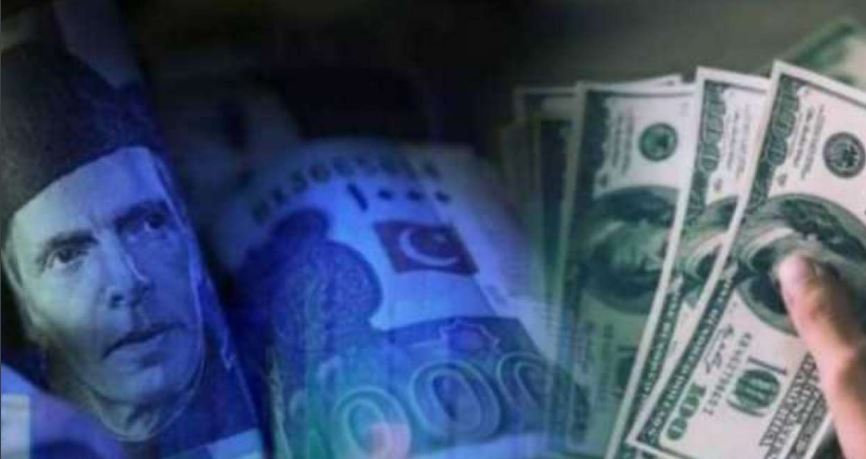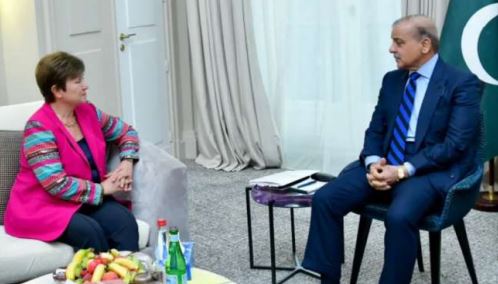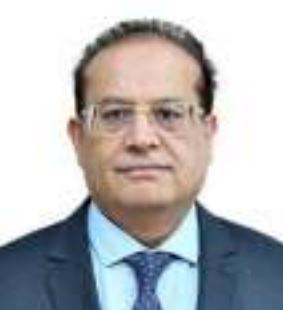
Prime Minister Shahbaz Sharif has guts and attitude to engage with establishment, leaders and heads of international lenders to create a win-win situation
Qamar Bashir
Prime Minister, Shahbaz Sharif, is affectionately called as Shahbaz Speed, a title bestowed upon him by Vice-Minister Zheng Xiaosong of the International Department of the Central Committee of the Communist Party of China in 2018, and Shahbaz has proven himself worthy of this title time and again since then.
He is not only known to deliver, his ability to resolve complex issues, and his loyalty to his brother, which has been put to the test time and again, but he has always emerged victorious. Unlike his elder brother Nawaz, Shahbaz has the guts and attitude to engage with establishment.
He could have been Prime Minister in lieu of Imran Khan if it hadn’t been for his unwavering allegiance to his brother, but declined the coveted premiership at the cost of abandoning his brother. He galvanized the entire PDM into a strong force that drove Imran Khan from power. Imran Khan, who had been comfortably ruling, was stunned when he was made powerless in no time, the truth revealed to him only after he was ousted as the powers that be had narrowed it down to Shahbaz Sharif even a year before Khan’s ouster.
Shahaz Sharif played his card as prime minister with ease in the face of daunting political, law and order, social economic, and budgetary issues that marred his time in power. But even in the hardest of times, he controlled his nerves. He not only kept the unwieldy PDM intact but made it a force to reckon with. He handled establishment which perhaps was his biggest challenge in the given timeframe precarious political and security situations.
Shahbaz met the IMF Managing Director Kristalina Georgieva on June 22, 2023, and successfully paved the way for restoration of stalled IMF program, which the economic wizard of the PML(N) Ishaq Dar has completely lost. His evaluation and strategy failed, and he was unable to persuade the IMF as well as the people of Pakistan, who are experiencing hyperinflation that the country has never experienced before, even during the lowest and most dismal moment in our history.

Shahbaz Sharif resurrected an almost-dead IMF program in a half-hour meeting that Ishaq Dar couldn’t do in a year, paving the way for a $6 billion bailout and the release of a critical tranche of $1.1 billion in loans that had been on hold since November 2022. The meeting took place just a week before the expiration of a $6 billion rescue plan signed in 2019 between the IMF and the country’s former Prime Minister Imran Khan.
During the meeting, he pledged to raise taxes, reduce energy subsidies, float the Pakistani rupee, close the external financing deficit, and amend the budget presented earlier this month, which the IMF said violated the program’s objectives. Shahbaz was able to charm the “IMF chief at critical times when the State Bank of Pakistan’s foreign exchange reserves were barely enough to cover one month of controlled imports. AT that time the country was facing an acute balance of payment crisis that could have spiraled into a debt default if the IMF money did not come through.”
Reportedly, the IMF has agreed to provide a $1.17 billion tranche of money to Pakistan once the government takes measures proposed by IMF both in letter and spirit. It will assist the country in bolstering foreign exchange reserves, stabilizing the economy, avoiding a debt default, and restoring investor confidence. The intervention of Shahbaz is a positive development for Pakistan, but there are certain calculated risks if the government fails to implement the agreed-upon steps in a timely and effective manner. The budget for the new fiscal year was adopted by the National Assembly (NA) on June 25, 2023, as agreed between Shahbaz and the IMF Chief, a day after the Finance Minister made significant changes, including fiscal tightening measures in a last-ditch push to acquire necessary funds. The amended budget seeks an additional Rs 215 billion in tax revenue while cutting public spending by Rs 85 billion and slashing pensions for government retired employees, which Ishaq Dar considered a wasteful and unnecessary expenditure, as if the pension was only granted by Pakistan and no other country did so.
His comments on the pension, which he projected to be worth 800 billion, were an insult to all government servants, both civilian and retired military officers, who had given their prized and most productive years in public service. On the other hand, he showered his generosity on all former and incumbent chairman and deputy chairmans with both hands, as if we are the richest country on the face of the earth.

If the matter had been left to Ishaq Dar alone, we would have been in a dire economic situation because he had refused to accept the IMF’s conditions, to which Muftah Ismael had rightly agreed but Dar due to his intellectual arrogance reversed without evaluating the cost and benefit of it, and at the same time deprived PML(N) one his most trusted worker. Dar was overly confident that he would not only prevail over the IMF and would also succeed in presenting a people-friendly budget to aid PML(N) to sail through the forthcoming elections. Because our consecutive governments have allegedly been engaged in figure-fudging, declaring economic performance based on fabricated data that does not reflect the genuine situation of our financial and economic outlook. As a result, while prospective investors, traders, and lenders examine the government’s economic data, they have developed their own mechanism to gather accurate, reliable, or transparent data that stakeholders use to make investment, trading, business, and lending decisions.
As one of the most experienced politicians and close associate and confidant of Nawaz Sharif, Ishaq Dar had both benefited and suffered. He has served in the government as Minister of Finance, Minister of Commerce, and Minister of Planning and Development, and has also been imprisoned and exiled. His tenure as Finance Minister from 2013 to 2017 was marked by a number of economic reforms, including the implementation of the Benazir Income Support Programme, the privatization of several state-owned enterprises, an increase in the country’s foreign exchange reserves, an increase in the country’s GDP growth rate from 3.6% in 2013 to 5.8% in 2017, lowering inflation from 8.5% to 3.9%, and stabilizing the rupee. Dar’s reforms, however, were criticized for being too focused on austerity measures, which resulted in reduced social spending and increasing poverty, as well as his failure to handle the country’s financial crisis.

He’s back in the same seat, but this time he’s faced with the most tough choices of all. He must keep the IMF on track while simultaneously keeping an eye on hyperinflation, which is wreaking havoc on everyone and increasing hardship by the day. He had to undo all of his interventions since taking over from Muftah Ismael. After the Prime Minister signed a pledge with the IMF director, he was forced to rescind several of his budget innovations. He must meet the demands of every PDM component party, no matter how little or insignificant, or if they lack financial and economic reason.

The writer is a former Press Secretary to the President of Pakistan, former Press Minister at the Pakistan’s Embassy in France, and former MD, SRBC.

